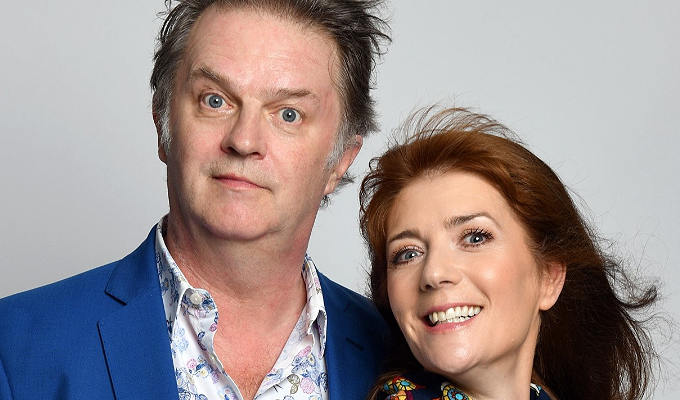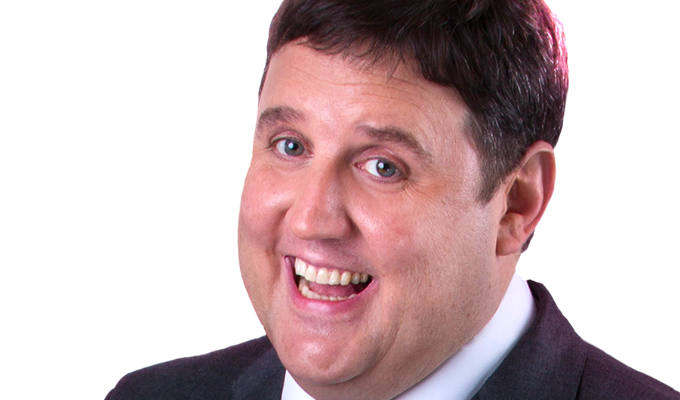
Tom Mayhew: Fragile Fragments
Note: This review is from 2017
Edinburgh Fringe comedy review by Jay Richardson
Of all the precarious relationships in his life, you're tempted to say that the most difficult one for Tom Mayhew is the one he has with comedy.
Beyond the fact that this odd, vulnerable 25-year-old has wanted to be a comic for half his life and that his uncommercial style doesn't appear likely to pay his bills anytime soon, his unyielding persona of a shy, sad loser makes the prospect of success for him seem paradoxically impossible.
With Fragile Fragments conceived as a cathartic love letter to a dead relationship that he couldn't acknowledge while he was in it, he then went and messed that up by falling in love again just before the Fringe. Not only that, but his new beau is so attuned to his personality, that she supposedly dumps him before every gig, just so he's in the right headspace.
And it's a fascinating brain he's got in there, with as much of this distinctive hour spent trying to solve the riddle of Mayhew as it is him making you laugh.
Wrongfooting from the first, with a neat card trick opener, he delivers most of his set facing the side wall, avoiding eye contact, tugging his forelock during the set-up, casting his eyes apologetically down on the punchline. It's a ritual so pronounced and consistent that you instantly notice whenever he breaks the pattern.
A writerly comic, whose muse is his depression and social awkwardness, he's adroit with a one-liner but listless, inexpressive and instinctively self-deprecating, preparing you for a long hour. You can see how he'd stand out on a club bill and even the jokes he'd deploy in a short set, the subversion of the knock-knock gag; the ‘Roses are red…’ poems; all with himself as the punchbag punchline. Fortunately, he's offering a little more for his Fringe debut.
On a superficial level, there are short set-pieces, such as the masochistic Heckle Tom section, which he disclaims by pointing to a small hook in the ceiling behind him, stating that it's not strong enough for him to hang himself. Tellingly, there's a palpable reluctance in the audience to attack someone who every now and then attracts 'awws' of sympathy rather than laughs, to the extent that he once recalls a voice in the dark piping up: 'I'll be your friend'.
Eventually, his plea provoked the softest of jibes aimed at his outfit, delivered to break the awkward silence and to stop him looking sorry for himself as much as anything. But Mayhew follows up with the most cutting remarks elicited from more brutal audiences, a canny way for a newcomer to do a ‘celebrity-I-look-like’ bit without it seeming forced.
It turns out that he's not so easily defined, though, not by his working-class roots, which people struggle to reconcile with his apparent middle-class indulgence of depression or his bisexuality. Someone really ought to write an academic paper on whether stand-ups, often at the vanguard of cultural trends are reflective of the broadening spectrum of sexuality in society. Or whether so many now identify as bi because of the opportunities for material it presents.
Either way, it prompts a lot in Mayhew, from a variation on Woody Allen's classic quip on the theme, to his unlikely sense of zeitgeist cool and the impression that he's giving you his feelings raw and genuine. There's even an atypically steely slam of people's prurient interest into the algebra of his sexuality, a potent rejoinder to all those hack routines about the admin involved in threesomes.
He's equally dismissive of those that tell him he ought to be more confident, his timidity justified by the hypothetical mugging routine it inspires.
Mayhew cites stand-up as both a salvation from, and cause of, his mental health struggles, but there's a curious moment when he w suggests he's a happier person off stage and that this might all be a bit of an act. This is oddly less believable than the Catch-22 employment and sexual traps he's found himself in, which have a ring of authenticity. And he betrays himself as a comedy nerd with some skilful callbacks and other archetypal Fringe show trappings.
Without enthusiasm to sell them, Mayhew's weaker gags fall by the wayside and he struggles to build momentum even with the winners. Yet whether through pity or respect for his obvious writing talent, he's compelling in spite of himself, with the story always more interesting before the ugly duckling becomes a swan.
Review date: 26 Aug 2017
Reviewed by: Jay Richardson









